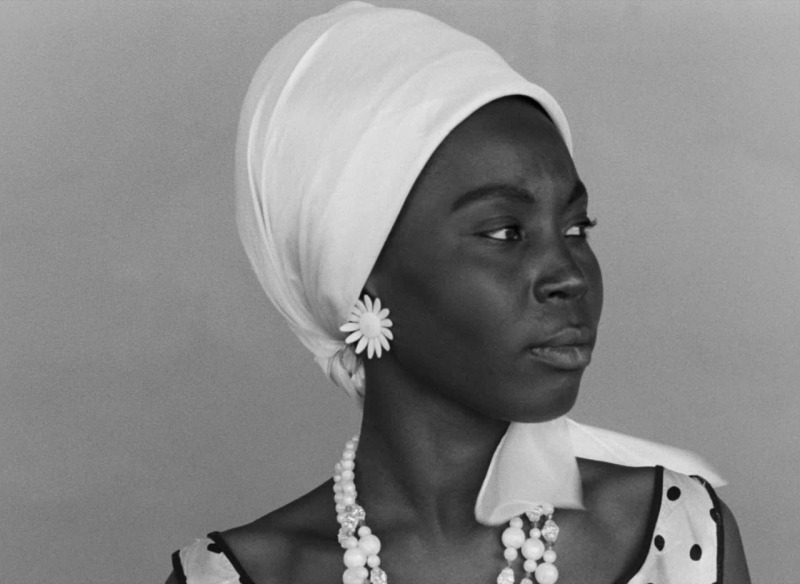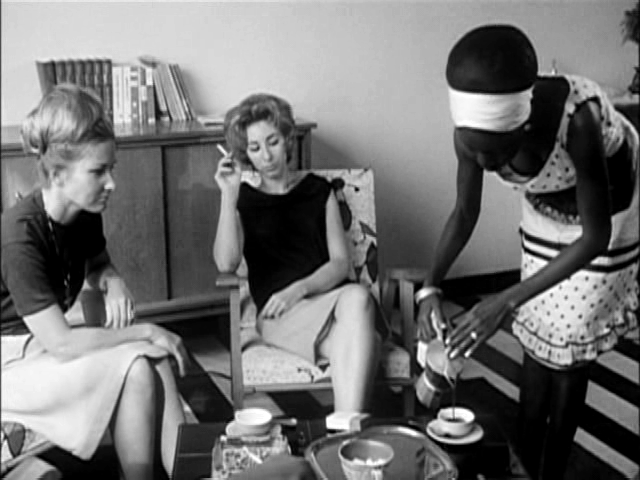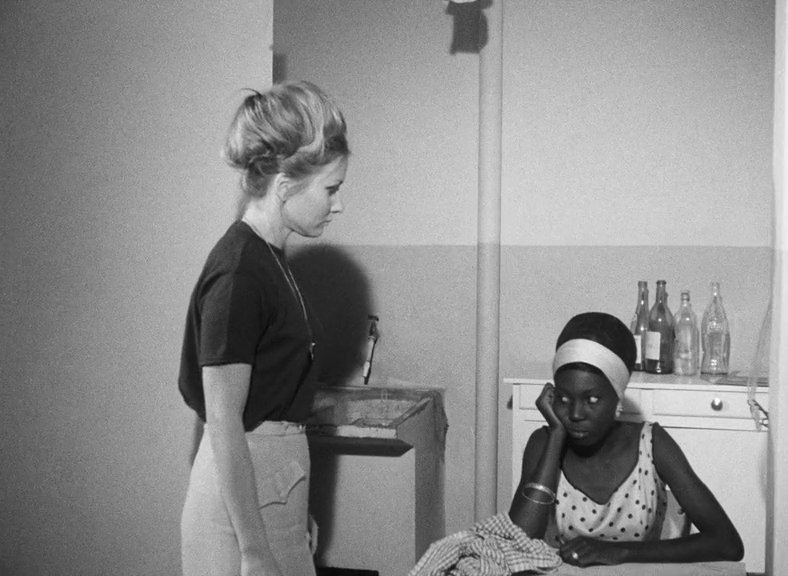Ousmane Sembene’s Black Girl (originally titled La noire de…) depicts the tragedy that can arise from isolation and loneliness. It deals with ideas of francophone identity, particularly in a post-colonial African context. It is arguably Sembene’s most acclaimed and well-known feature film, and it continues to remain a notable classic through the Criterion collection. One of the few African films of the Criterion collection, it thus made sense to highlight its work and influence throughout cinema.

Black Girl is regarded as one of the first African feature films made in Sub-Saharan Africa. It tells the story of a young woman called Diouana, who leaves her home in Dakar, Senegal to work for a white family in France. Once she arrives in France, she discovers that not only will she have to take care of the children as agreed upon, but she will also have to work as the family’s housemaid, cooking and cleaning without pay or any appreciation. Moreover, she has to live in a place where she has no friends or family and is alienated further by the colour of her skin as she faces racial prejudice and stigmatization.
“Is France that black hole? What am I here? […] I spend my life between the kitchen and my bedroom. Is that living in France?”
The contrast of the film is in black and white is metaphorical for the contrast of race, illustrated by the opposing sides of Diouana and her white mistress. Diouana’s mistress often treats her like she does not know anything; as though Diouana should be grateful for what she has done for her. Yet in the process, Diouana has become isolated from all she knows and consequently becomes confined to the little space she has, as she remarks that her entire life is “between the kitchen and [her] bedroom.” Mbissine Thérèse Diop plays Diouana with the full range of emotion and depth required for such a complex, well-developed role. She completely illuminates the screen and says so much with the simplicity of just her eyes and body language.

African culture is a large part of the film and the focus on Senegalese life, music and its cultural artifacts are significant aspects in emphasizing how much Diouana’s culture and identity are stripped from her. Oral tradition is a prevalent part of African culture and Sembene uses oral storytelling in a way that feels natural and personal. The film’s ambiguous original title being La noire de… which means ‘The Black Woman From…’ is significant in its construction of time, image, and sound. Juxtaposing sounds of Wolof guitar and French piano music echoes the emotional dissonance that Diouana feels. Diouana is thus displaced, without an identity or home. The non-linear structure emphasizes this, moving us back and forth between France and Senegal as Diouana cannot settle in either. The use of the French language instead of the Wolof language as well as the dubbing of the lead actress’ voice speaks to the character’s voicelessness throughout the narrative. This makes for extremely devastating consequences for the character as little by little Diouana is stripped of her voice, her agency and even her dignity.

Sembene’s film is a stark and darkly profound look at interpersonal relationships across cultures, race, and class. It is a mostly black and white, short 65-minute film and is gorgeously shot. He seamlessly blends an influence of French New Wave whilst also keeping an authentic African feel to the story and construction of the film. He positions Diouana as the central focus of the film through intense framing. Constant close up shots and a narrative voice-over help form the story from Diouana’s perspective. The film can at times feel overly dramatic or theatrical and maybe a little heavy-handed in its final message with how dark Diouana’s story actually gets and how her story ends. However, it is still a beautifully shot film and provides an important and deep look into francophone identity in a post-colonial African country. It remains a great classic in African and world cinema and continues to influence films today.
